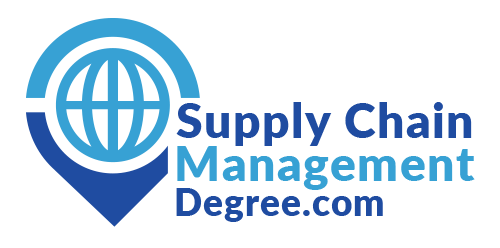The Impact of Technology on Supply Chain Management Education
Technology plays a pivotal role in reshaping the way professionals are educated and trained. The integration of cutting-edge technologies has not only revolutionized traditional teaching methods but has also equipped aspiring supply chain managers with the skills necessary to navigate the complexities of modern logistics. This blog explores the transformative impact of technology on supply chain management education and how it is shaping the future of the industry.
Virtual Learning Environments: Technology has ushered in an era of virtual learning environments, breaking down geographical barriers and providing students with unprecedented access to resources. Virtual classrooms, webinars, and online courses enable individuals to pursue supply chain education from anywhere in the world. This flexibility fosters a diverse and global perspective, essential in understanding the interconnected nature of supply chains on a global scale.
Simulation and Gamification: Simulations and gamification have become powerful tools in supply chain education. By creating realistic scenarios and challenges, students can apply theoretical knowledge in a practical setting. This hands-on approach enhances problem-solving skills and decision-making capabilities, preparing students for real-world challenges they may encounter in supply chain management roles. Virtual simulations also allow students to experiment with different strategies and witness the consequences in a risk-free environment.
Big Data and Analytics: The influx of big data in supply chain management has necessitated a shift in educational focus towards data analytics. Technology enables students to analyze vast datasets to identify trends, optimize processes, and make informed decisions. Understanding data analytics is becoming increasingly crucial for supply chain professionals as it provides valuable insights into improving efficiency, reducing costs, and enhancing overall performance.
Internet of Things (IoT) and Connectivity: The Internet of Things (IoT) has revolutionized the way supply chain systems operate. In education, IoT enables students to comprehend the interconnected nature of supply chain components. Smart sensors, RFID technology, and real-time tracking systems allow students to explore how data is collected and utilized throughout the supply chain. This firsthand experience fosters a deep understanding of the importance of connectivity in optimizing supply chain processes.
Blockchain Technology: Blockchain technology is gaining prominence in supply chain management, especially in areas such as transparency, traceability, and security. Educating students on blockchain’s role in supply chain enables them to understand how it enhances trust and accountability in the movement of goods. Learning about blockchain ensures that future supply chain professionals are equipped to leverage this technology to address challenges such as fraud prevention and supply chain visibility.
The integration of technology into supply chain management education is not merely a trend but a necessity in preparing the next generation of professionals. As the industry continues to evolve, staying abreast of technological advancements becomes crucial for success. By embracing virtual learning environments, simulations, data analytics, IoT, and blockchain technology, supply chain management education ensures that graduates are well-equipped to navigate the complexities of modern supply chains and contribute meaningfully to the industry’s continued growth and innovation



